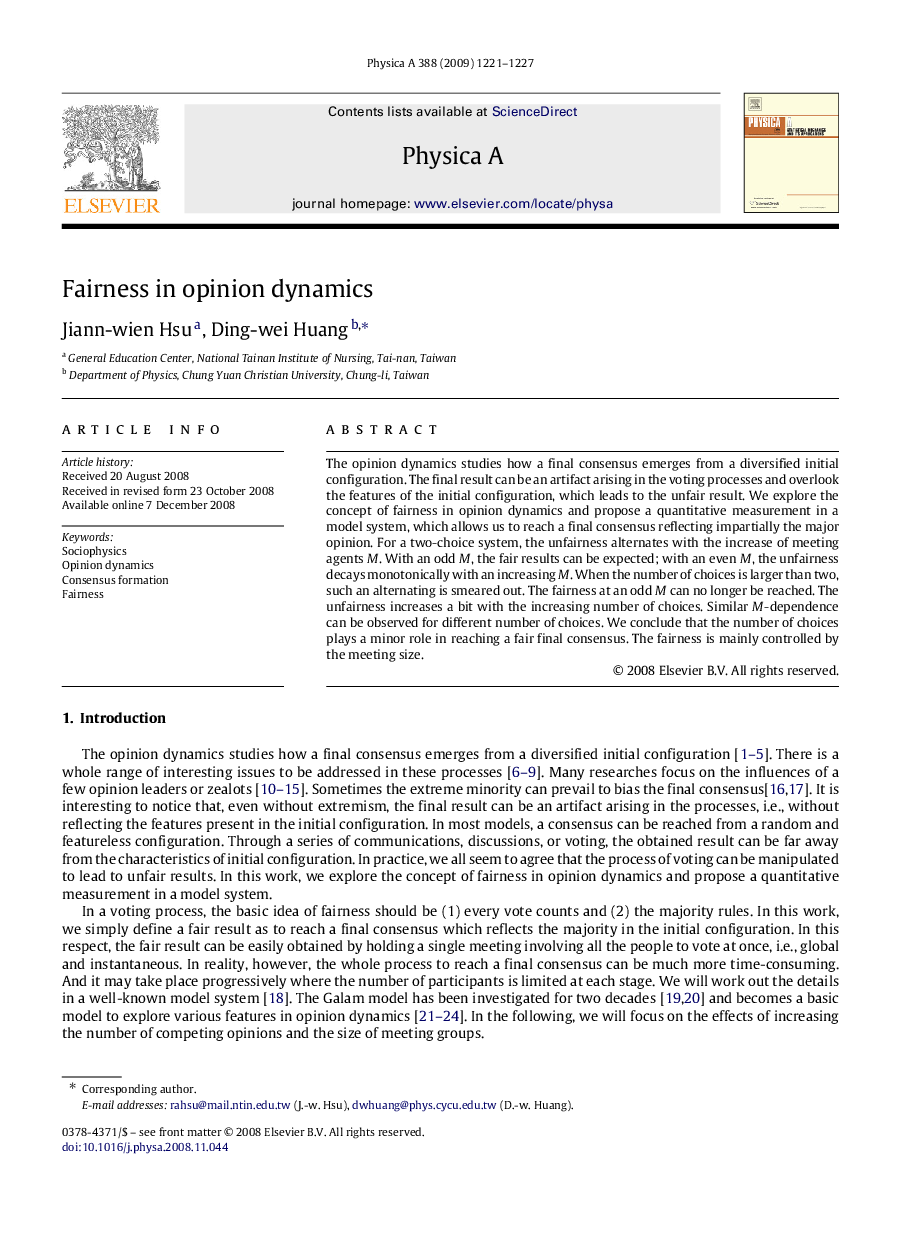| Article ID | Journal | Published Year | Pages | File Type |
|---|---|---|---|---|
| 977296 | Physica A: Statistical Mechanics and its Applications | 2009 | 7 Pages |
The opinion dynamics studies how a final consensus emerges from a diversified initial configuration. The final result can be an artifact arising in the voting processes and overlook the features of the initial configuration, which leads to the unfair result. We explore the concept of fairness in opinion dynamics and propose a quantitative measurement in a model system, which allows us to reach a final consensus reflecting impartially the major opinion. For a two-choice system, the unfairness alternates with the increase of meeting agents MM. With an odd MM, the fair results can be expected; with an even MM, the unfairness decays monotonically with an increasing MM. When the number of choices is larger than two, such an alternating is smeared out. The fairness at an odd MM can no longer be reached. The unfairness increases a bit with the increasing number of choices. Similar MM-dependence can be observed for different number of choices. We conclude that the number of choices plays a minor role in reaching a fair final consensus. The fairness is mainly controlled by the meeting size.
